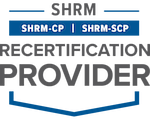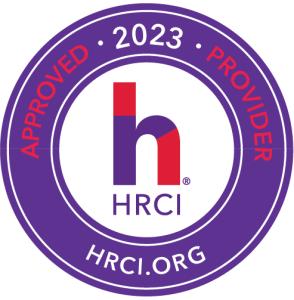Description
RECORDED TRAINING COURSE


Employers may need to adjust their pay practices now that the Labor Department has issued its long-anticipated proposal to raise the salary threshold for exempt employees – a change that could make more of your employees eligible for overtime premiums. The U.S. Department of Labor (DOL) announced today that it intends to significantly raise the exempt salary threshold from $684 per week to $1,059, meaning employees would need to earn $55,068 or more per year to be exempt from OT pay. An estimated 3.6 million U.S. workers would become eligible for overtime pay under the proposed rule.
DOL’s proposal also would increase the total annual compensation requirement for highly compensated employees to $143,988 per year. The proposal outlines an automatic update provision for future overtime thresholds beyond what is included in the proposed rule and would not make changes to the FLSA’s “duties test” for determining overtime eligibility. Once published in the Federal Register, the proposal will be subject to a 60-day public comment period.
SESSION HIGHLIGHTS:
- Learn what the new DOL proposal includes and who would it impact more.
- Learn how long Employers have to make changes.
- Learn how Employers can proactively impact the proposed decision.
- Learn what communication details can effectively and positively impact newly non-exempt employees.
- Learn how job responsibilities determine classification, not job titles.
- Learn how to comply without the risk of a decrease in staff morale, increase in turnover, decrease in retention, and removing benefits.
- Learn how the automatic updates in salary threshold according to the consumer price index (CPI) can impact ongoing budget losses.
- Learn how employers should confirm the duties tests before making negative decisions.
- Learn how the Executive Exemption, Administrative Exemption, and Professional Exemptions can confuse the Employer’s judgment on exempt and non-exempt employees.
- Learn how Employers can use the Fair Labor Standards Act to prepare for identifying the proper compliance guidelines.
- Learn how timekeeping procedures, off-the-clock work policies and recordkeeping, and overtime approval policies can impact compliance with FLSA requirements.
- Learn how Employers need to determine the proper classification of employees or risk fines and penalties.
- Learn what resources Employers can use to mitigate the negative response by employees.
- Learn what Employers need to do to determine how state overtime regulations impact federal regulations and which supersedes them.
Why You Should Attend:
Although the announcement indicates a proposal, Employers should learn that the previous overtime increase created severe complications regarding communications to impacted employees, a decrease in staff morale for those who believed that it was a demotion, loss of benefits when they decided to reduce hours, and costs, challenges with job descriptions and expected impact in Employer’s budget. It led to an increase in turnover and a decrease in retention.
Employers can take the time to review and prepare for setting guidelines on how they communicate the impact to employees, make effective decisions on how to cut costs without reducing employee hours or benefits, and develop a training program for managers and newly non-exempt employees.
Who Should Attend:
- All Employers
- Business Owners
- Company Leadership
- Compliance professionals
- Payroll Administrators
- HR Professionals
- Managers/Supervisors
- Employers in all industries
- Small Business Owners
Note: You will get access to the Recording link and E-Transcript; in your account and at your registered email address.





